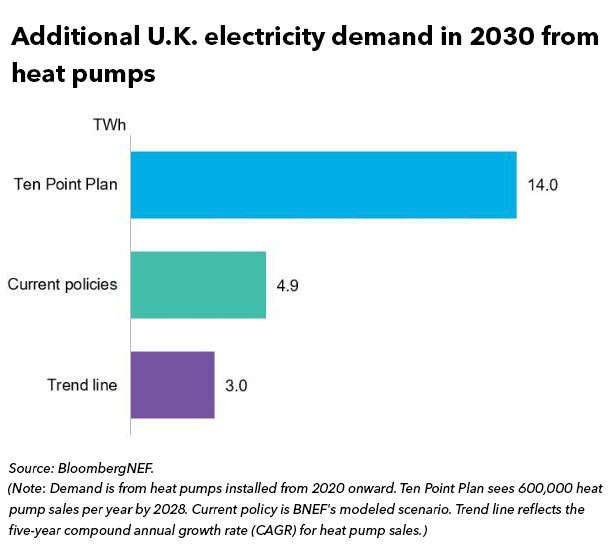This article first appeared on the BNEF mobile app and the Bloomberg Terminal.
- U.K. heat pump target could increase consumption by 14TWh
- Gain of 4.9TWh is more likely, BNEF forecasts indicate

The U.K. government’s heat pump sales target could add 14 terawatt-hours (TWh) to electricity demand by 2030. This is a 5% increase in electricity demand compared to BNEF’s base case.
Heat pumps are an electric alternative to natural gas, oil and coal heating units. When paired with renewables, they can help decarbonize building energy use.
In reality, heat pump sales are likely to be lower than the government’s target. BNEF forecasts that 171,700 residential heat pump sales per year could be achieved by 2030 under current policies. This would still add 4.9TWh (1.8%) to electricity demand in 2030 and could increase revenue for electricity retailers like Centrica Plc, Ovo Energy Ltd, E.On SE and Electrite de France SA.
Heat pumps are more efficient than traditional heating equipment and should lower U.K. energy demand by 0.4TWh overall, according to BNEF’s forecast. Oil displacement is likely to present the biggest energy savings. The impact on natural gas demand will be more muted due to the low retail price of this fuel.
BNEF Shorts are research excerpts available only on the BNEF mobile app and the Bloomberg Terminal, highlighting key findings from our reports. If you would like to learn more about our services, please contact us.